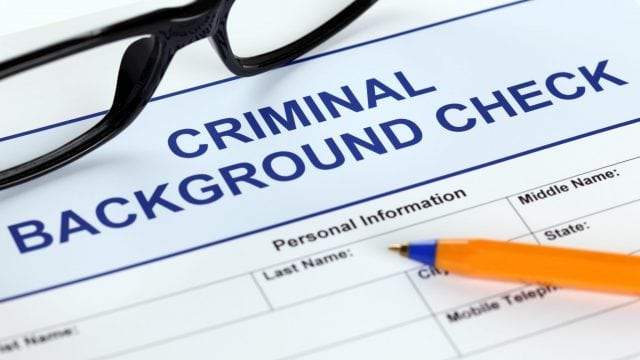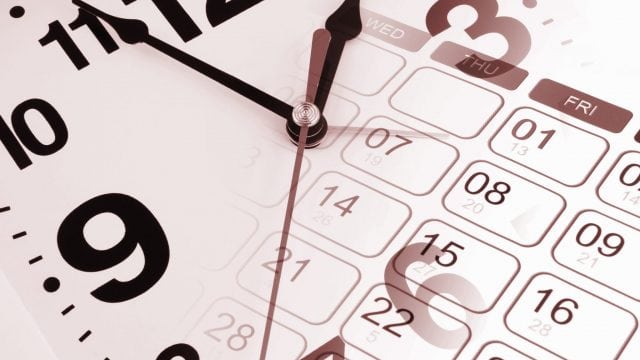 Federal Marijuana Pardons – What This Means in the Context of Federal Expungement Law
Federal Marijuana Pardons – What This Means in the Context of Federal Expungement Law
If you or someone you know has been convicted of a federal marijuana-related offense, you may be eligible for a pardon. On October 6, 2022, President Biden announced a clemency initiative aimed at providing relief to those incarcerated under federal marijuana laws. The initiative will provide an opportunity for certain nonviolent offenders to have their records expunged and receive a presidential pardon.
This article will go into detail about what the pardon means and what you need to know about this process and how it could help you clear your record, eligibility, process, and benefits of getting a federal marijuana pardon.
Read on to learn more about getting a federal expungement for simple marijuana possession.
What is the Federal Marijuana Pardon?
On October 6, 2022, President Biden issued a directive that could have a profound impact on the lives of thousands of Americans. The initiative is part of the administration’s broader effort to address the disproportionate impact that marijuana enforcement has had on communities of color.
The directive establishes a three-step plan to pardon federal marijuana convictions. First, the president grants pardons for federal offenses of simple marijuana possession. Second, he urges governors to follow suit. Finally, he asks the Secretary of Health and Human Services and the Attorney General to review the view of marijuana as a dangerous controlled substance.
According to the White House, this review could lead to the decriminalization of marijuana at the federal level. If implemented, the Federal marijuana pardon would represent a major step forward in the movement to reform our nation’s cannabis laws.
Norml estimates that over 6,500 American citizens are eligible for this pardon. For these individuals, the pardon would erase the federal conviction from their record. This, in turn, would open up new opportunities and remove many of the barriers that have been preventing them from fully participating in society.
Pardon vs Expungement
It’s important to note that a federal marijuana pardon is different from an expungement. An expungement is a legal process that permanently destroys all records of an arrest or conviction. By contrast, a pardon does not erase the record of a conviction. However, it does restore certain rights and privileges that were taken away because of the conviction.
For example, a person with a federal marijuana pardon would likely be able to pass a background check for employment. In addition, a pardon can make it easier to obtain a professional license, rent an apartment, or buy a gun.
Still, without an expungement, the conviction would remain on the person’s record. This means that the person could still be denied certain opportunities, such as federal employment or housing.
NBC News Boston interviewed Gov. Charlie Baker. Baker suggests that President Biden’s approach to pardons is not enough. Rather, expungements are required to provide “true justice.”
While a pardon is a start, it’s clear that much more needs to be done to right the wrongs of our nation’s failed “war on drugs.”
It’s also worth noting that the Federal marijuana pardon only applies to federal offenses. It does not automatically expunge state-level convictions. However, some states have laws that allow people with federal pardons to petition for the expungement of their state-level convictions.
What Can Currently Be Expunged Federally?
The Federal marijuana pardon is a major step forward, but it’s important to remember that it’s not the same as an expungement. An expungement is a legal process that permanently destroys all records of an arrest or conviction.
According to Justice.gov, “A pardon is an expression of the President’s forgiveness. It does not signify innocence or expunge the conviction.” At present, there is no federal law that allows for the expungement of criminal records.
Benefits of the Federal Marijuana Pardon
The benefits of the federal marijuana pardon are significant for those with minor convictions. For many people, it will mean a fresh start and the opportunity to rebuild their lives. Here are just a few of the ways that the pardon can help:
● You will no longer have to disclose your conviction on job applications.
● You will be eligible for federal benefits that were previously unavailable to you.
● You will be able to possess a gun (in most states).
● You will no longer be barred from adopting children.
● You may be able to get your professional license.
● You may be able to serve on a jury.
Eligibility for the Federal Marijuana Pardon
To be eligible for the Federal marijuana pardon, you must meet the following criteria:
● You must have been convicted of a federal offense related to simple possession of marijuana.
● You must be a United States citizen.
● You must not have any other pending criminal charges.
If you meet the above criteria, you can soon apply for a federal marijuana pardon by filling out a pardon application. The pardon application will soon be found on Justice.gov/pardon. They suggest saving the site and checking back to see when the application is available.
What Does the Pardon NOT Do?
It’s important to note that the federal marijuana pardon is a presidential directive, not a law. As such, it could be reversed by a future president.
There’s been a lot of talks lately about the federal government pardoning past marijuana convictions. While this is certainly good news for those with minor marijuana-related offenses on their record, it’s important to understand what this pardon doesn’t do. Let’s take a closer look at three key points: who is ineligible, whether the pardon is enough, and how the pardon affects other parts of a criminal record.
Who Is Ineligible?
The first thing to understand is that not everyone with a past marijuana conviction is eligible for a pardon. The pardon only applies to those with non-violent and minor offenses. If you have a violent offense or multiple offenses on your record, you will not be eligible for a pardon.
It also doesn’t apply to state-level convictions, so if your only conviction is for possession of marijuana in a state where it’s legal, you, unfortunately, won’t be able to get a pardon.
Additionally, it only pardons those in possession of marijuana and does not include distributors. This means that people who were arrested for selling marijuana, even if it was a small amount, are not eligible.
Is It Enough?
Another thing to keep in mind is that a pardon does not erase your criminal record. Instead, it simply removes the convictions from your record. This means that potential employers will still be able to see that you were convicted of a crime, even if it has been pardoned.
According to Reason.com, President Biden’s recent pardon for federal marijuana possession is not enough because the pardon does not expunge the record, as he had initially promised.
This means that people who have been convicted of federal marijuana possession will still have a criminal record. So, while they might have a better chance, this could prevent them from getting jobs, housing, and other opportunities.
In addition, the pardon does not actually give convicts their time back, as most of the prison time for federal convictions for marijuana possession has already been served. Very few who are currently in prison will be pardoned. It mostly affects records.
President Biden has said that he is considering additional pardons, but it is unclear whether he will take any further action on this issue.
Does the Pardon Affect Other Parts of a Criminal Record?
The final point to consider is that the pardon does not affect other parts of your criminal record. For example, if you were convicted of a separate crime at the same time as the possession sentence, the pardon will not remove that conviction. Similarly, if you were deported as part of your sentence, the pardon will not allow you to return to the United States.
The Future of Marijuana Reform in the United States
The federal marijuana pardon is a major step forward, but it’s just one part of a larger movement to reform our nation’s cannabis laws. In the coming years, we can expect to see more states legalize marijuana for medicinal and recreational use.
We may also see Congress pass legislation that decriminalizes or legalizes marijuana at the federal level.
For now, the federal marijuana pardon is an important step in the right direction. It will provide relief for many people who have been unjustly burdened by our nation’s outdated and misguided cannabis laws.
The Good News About Congress Considering an Expungement Bill for Marijuana Possession Convictions
Those who are eligible for the pardon may be wondering if there is any hope of getting it expunged. The good news is that Congress is currently considering passing a bill that would expunge certain marijuana possession convictions.
This is welcome news for those who have been saddled with a criminal record for something that is now legal in many states.
What the Bill Would Do
The bill, known as the SAFE Banking Act, would give banks and financial institutions legal permission to work with cannabis providers. The bill would also expunge certain marijuana possession convictions.
If passed, the bill would also prohibit courts from considering prior marijuana convictions when sentencing defendants for other crimes. In other words, if you have a prior marijuana conviction on your record, it cannot be used against you in sentencing for another crime.
This is significant because having a criminal record can make it difficult to find employment, housing, and education. It can also lead to higher insurance rates and other problems. So, if this bill becomes law, it could provide some much-needed relief for those who have been convicted of marijuana possession.
If you have a marijuana possession conviction on your record, there is some good news on the horizon. Congress is currently considering passing a bill that would expunge certain marijuana possession convictions. While the fate of the bill is uncertain at this point, it is still something to keep an eye on if you are hoping to clear your record.
What Do Opponents of the Federal Presidential Marijuana Pardon Say?
The federal government has long been at odds with state governments over the issue of marijuana. The presidential pardon is not without its opponents. Let’s take a look at what some of those opponents have to say.
Marijuana is Still Illegal Under Federal Law
The first and most obvious argument against the presidential pardon is that marijuana is still illegal under federal law. Even if states have legalized it for medicinal or recreational use, it is still against the law at the federal level. This means that anyone with a past marijuana conviction would still technically be breaking the law.
Pew points out that many state governors are opposed to what the pardon could do to set precedent in their states.
The Pardon Could Encourage More People to Use Marijuana
Another argument against the pardon is that it could encourage more people to use marijuana. After all, if people know that they can get a pardon for marijuana possession, they may be more likely to take the risk and use it.
This argument is based on the belief that marijuana is a dangerous drug that should not be used by anyone. However, there is a growing body of evidence that suggests that marijuana is actually much safer than previously believed as long as it is not contaminated.
Marijuana Pardons Would Send the Wrong Message
Another argument against presidential pardons for marijuana convictions is that it would send the wrong message. Some people believe that pardoning people for breaking the law would encourage more people to break the law. They feel that it would show that the president is not serious about enforcing the law.
Marijuana Pardons Would be Unfair to Other Criminals
A final argument against presidential pardons for marijuana convictions is that it would be unfair to other criminals. There are many people in prison for nonviolent offenses who have not been given a presidential pardon. For example, someone who was convicted of tax fraud or embezzlement would not be eligible for a presidential pardon, but someone with a past marijuana conviction would be. This seems unfair to many people.
What Do Proponents of the Federal Presidential Marijuana Pardon Say?
While there are some valid arguments against presidential pardons for marijuana convictions. However, there are also some strong arguments in favor of it as well. Let’s take a look at some of those arguments now.
The Pardon Would Help Right a Past Injustice
One of the strongest arguments in favor of the presidential pardon is that it would help right a past injustice. NPR discusses the many effects the “war on drugs” has had on families and individuals. For too long, people have been incarcerated for nonviolent offenses, and their lives have been ruined as a result. The presidential pardon would provide some measure of relief for these people.
In addition, the presidential pardon would also send a strong message that our country is moving in the right direction when it comes to marijuana reform. It would show that we are willing to correct past mistakes and move forward in a more just and compassionate way.
The Pardon Would Help Reduce Mass Incarceration
Another strong argument in favor of the presidential pardon is that it would help reduce mass incarceration. As mentioned above, there are far too many people in prison for nonviolent offenses. The presidential pardon would help to alleviate this problem by freeing up space in our prisons for more serious offenders.
In addition, the presidential pardon would also send a strong message that we are committed to reducing mass incarceration. This is an important step in the right direction, and it would help to restore faith in our justice system.
The Pardon Would Help Heal Racial Divisions
Finally, the presidential pardon would also help heal racial divisions. For too long, minorities have been disproportionately impacted by our country’s war on drugs. The presidential pardon would send a strong message that we are willing to address this problem.
In addition, the presidential pardon would also help to build trust between law enforcement and the communities they serve. This is an important step in making our country safer for everyone.
How to Apply for the Federal Marijuana Pardon
The process for applying for the Federal marijuana pardon is still being finalized. However, the White House has said that the pardon will be available to eligible individuals “in the coming months.”
When the application process is open, you will likely be able to apply online or by mail. You will need to provide information about your criminal history, as well as any other relevant documentation. Visit Justice.gov for updates.
While the pardon does not guarantee that the conviction will be expunged at this time, it is a positive first step in the right direction.
If you have been convicted of a federal offense related to marijuana, keep an eye out for updates on the Federal marijuana pardon. It could be the key to a fresh start and a better future.
What Does This Mean for Federal Marijuana Law Moving Forward?
It seems likely that Congress will soon pass a federal law expunging the records of individuals convicted of simple possession. This is good news for the many people who have been burdened by past convictions.
An expungement means that the conviction will no longer appear on your record. This can open up opportunities for employment, housing, and education. It can also help restore your civil rights. If you have been convicted of simple possession, moving forward may soon be much easier.
What Might The Federal Marijuana Pardon Mean for Other Types of Drug Charges?
The recent federal marijuana pardon has left many people wondering what this means for other types of drug charges. While the pardon is a step in the right direction against the “war on drugs,” it does not mean that all drug charges will be pardoned. However, this does open up the possibility for other types of drug charges to be pardoned in the future.
The federal marijuana pardon is a welcome development for those who have been convicted of non-violent marijuana offenses. However, this does open up the possibility for other types of drug charges to be pardoned in the future.
This is because the pardon sets a precedent that non-violent drug offenses can be forgiven. This could lead to more people being pardoned for other types of drug offenses in the future.
What Does the Future Look Like?
For many people convicted of federal marijuana possession charges, the future may finally be looking up. Thanks to a recent change in the law, those with past convictions may now be eligible for a pardon or even have their records expunged.
This is welcome news for those who have struggled to find employment or housing due to their criminal record. With the stain of a drug conviction removed, they will finally have a chance to rebuild their lives and pursue their goals.
While the process of applying for a pardon or expungement can be daunting, it is worth it for those who wish to move on from their past and create a better future for themselves.
Final Thoughts
While the federal government’s decision to pardon past marijuana convictions is certainly good news for those affected, it’s important to understand what the pardon does – and doesn’t – do.
With President Biden’s presidential federal marijuana possession pardon, it gives individuals a second chance. This is not an expungement, but it is still a step in the right direction for those who were previously incarcerated for nonviolent drug offenses.
Stay updated on any new changes that might come from this decision and if you or anyone you know might be affected by it. If you have any questions about how the pardon may affect your specific situation, please contact our office and we would be happy to help.
Resources
https://www.justice.gov/pardon/presidential-proclamation-marijuana-possession
https://thedalesreport.com/cannabis/congress-very-close-to-passing-cannabis-and-expungement-bills/
https://www.mayoclinic.org/drugs-supplements-marijuana/art-20364974
https://www.npr.org/2022/10/10/1127708285/marijuana-pardon-biden-black-people-war-on-drugs-harm
https://www.boundless.com/blog/biden-marijuana-pardon-immigration/







